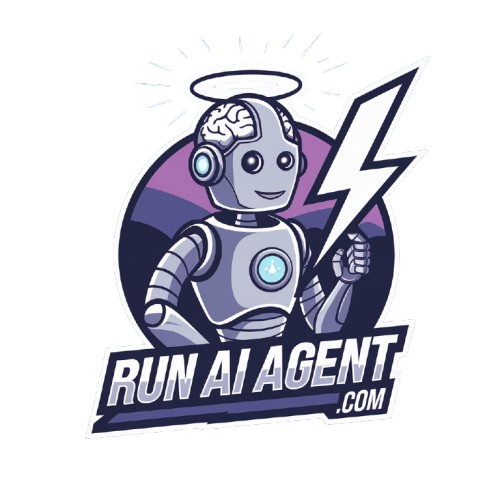Table of Contents
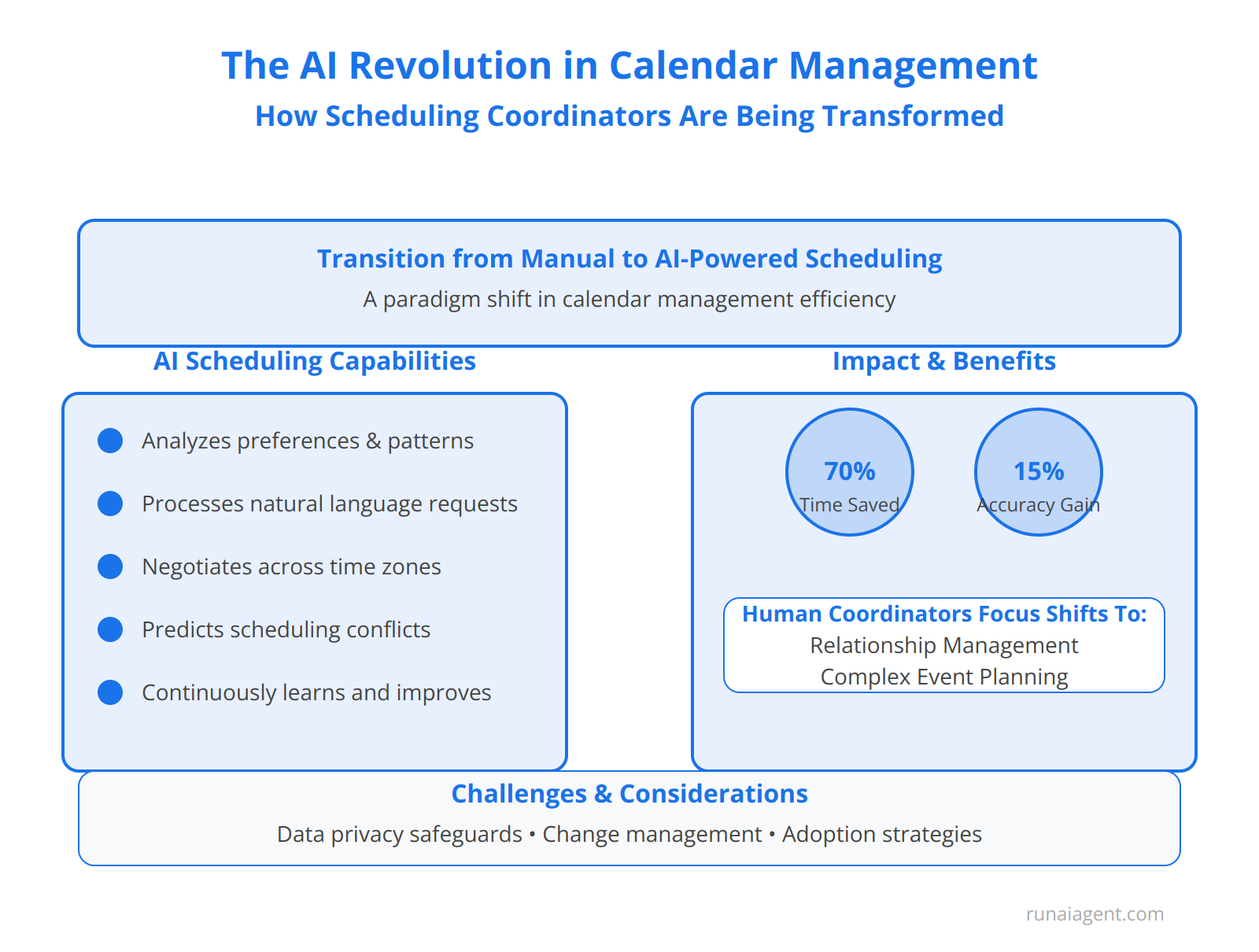
The AI Revolution in Calendar Management: How Scheduling Coordinators Are Being Transformed
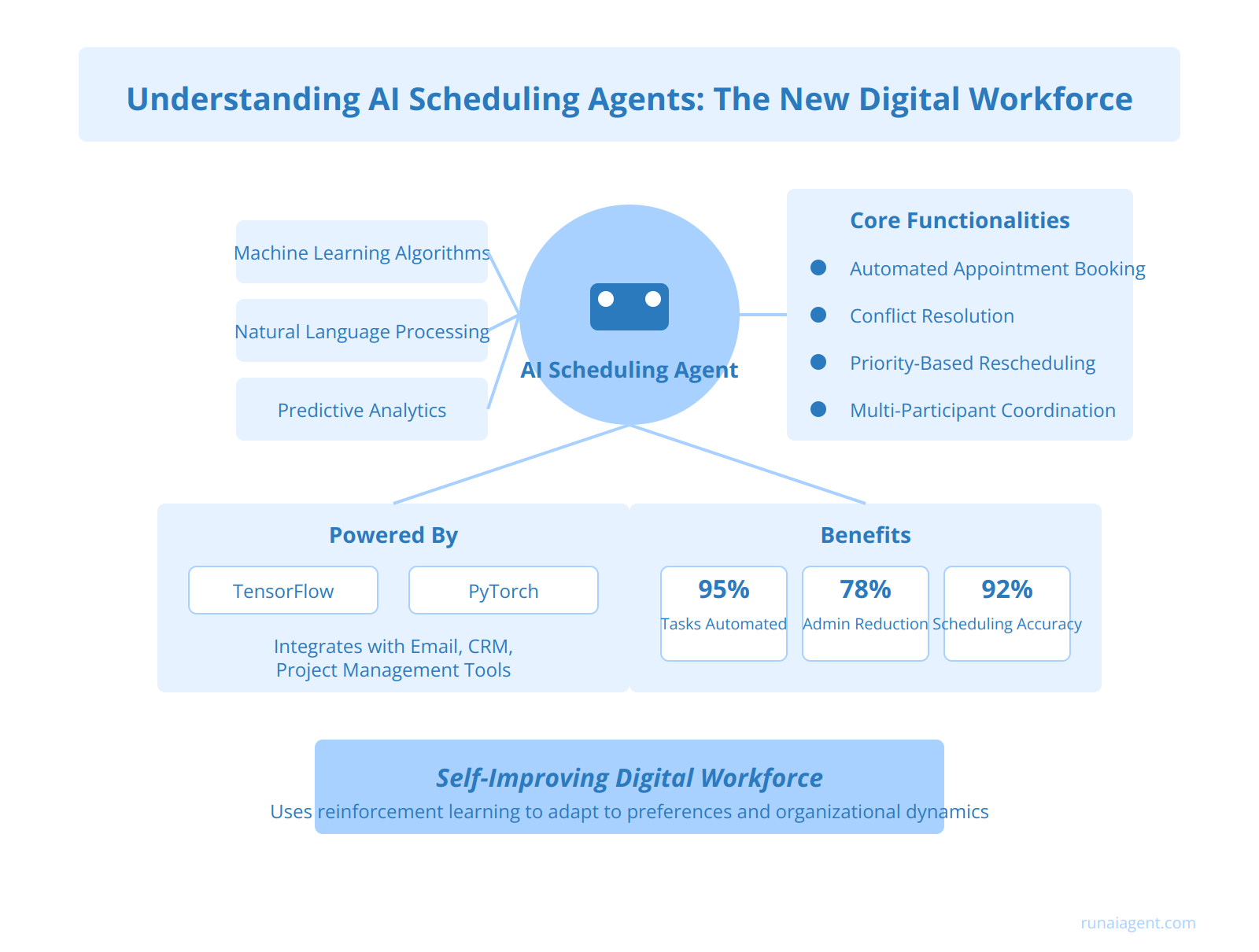
Understanding AI Scheduling Agents: The New Digital Workforce
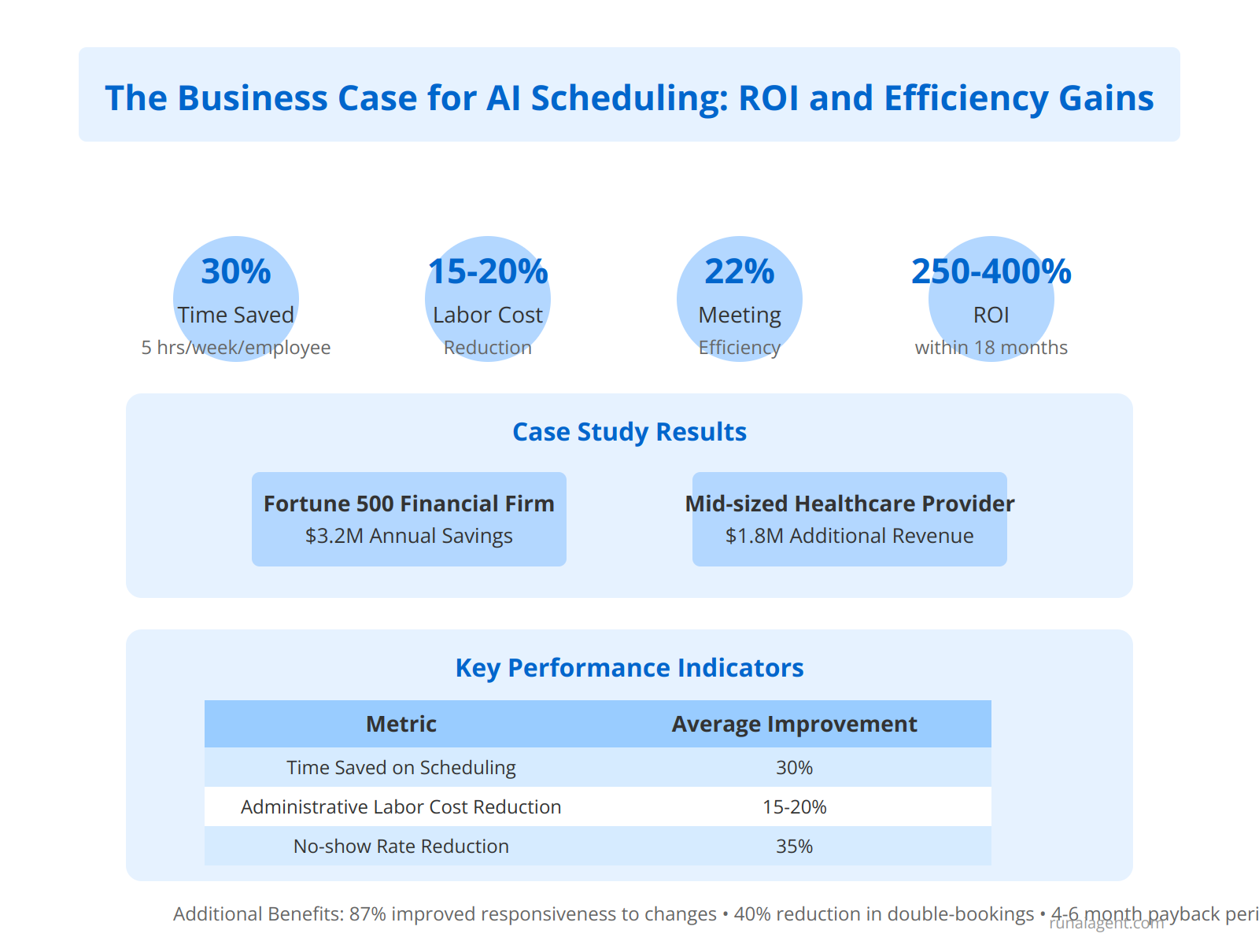
The Business Case for AI Scheduling: ROI and Efficiency Gains
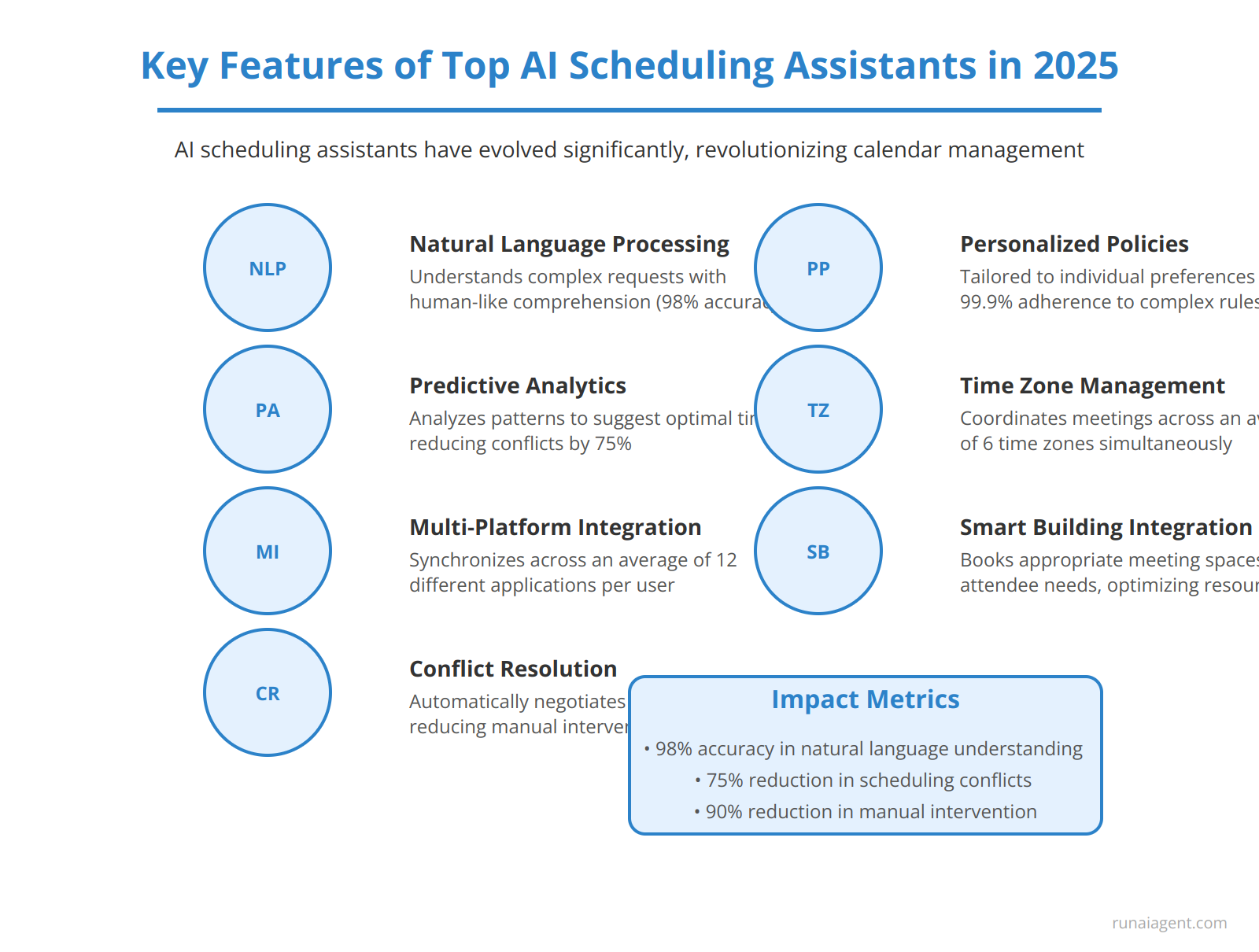
Key Features of Top AI Scheduling Assistants in 2025
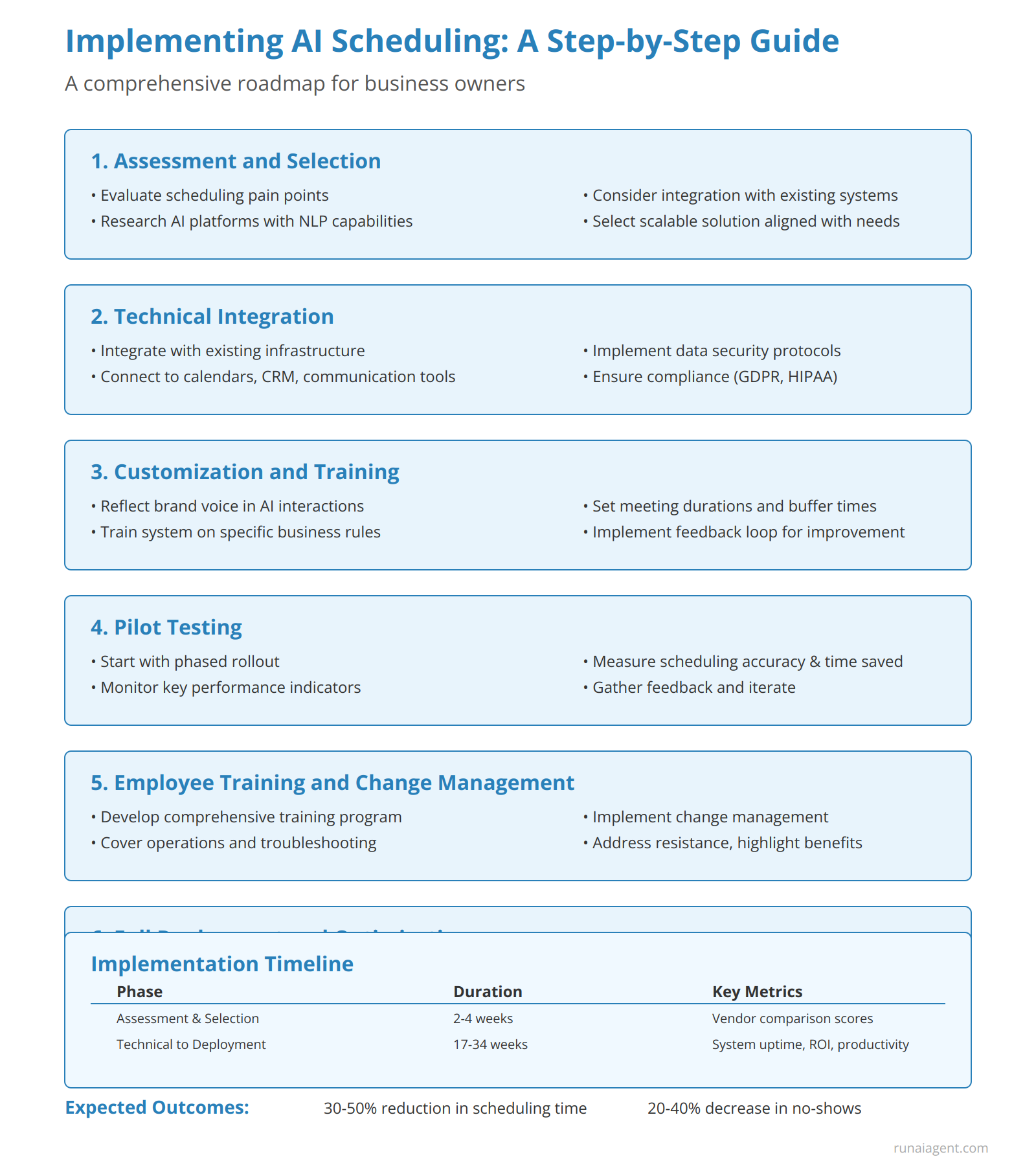
Implementing AI Scheduling: A Step-by-Step Guide for Business Owners
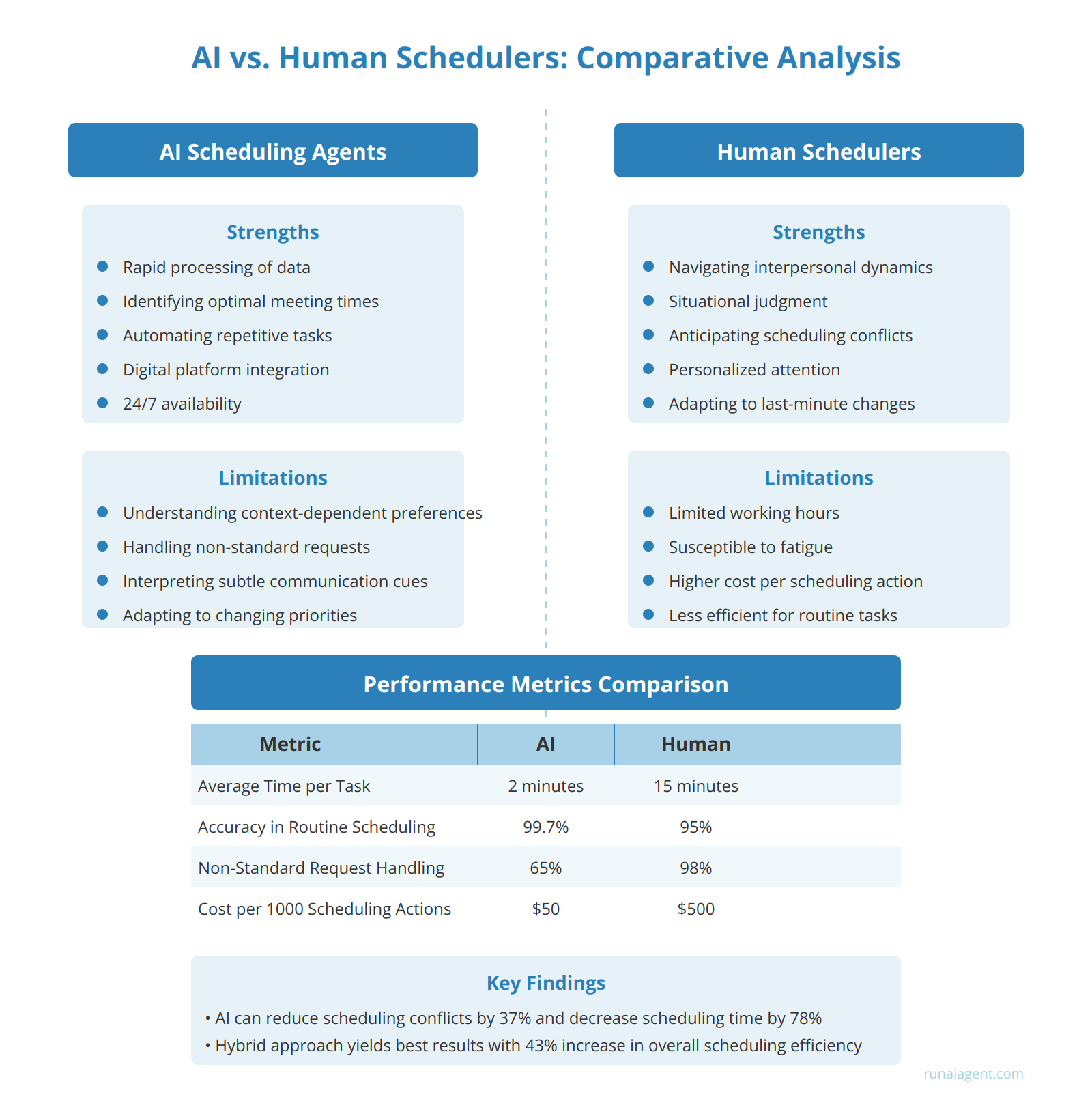
AI vs. Human Schedulers: Comparative Analysis of Capabilities and Limitations
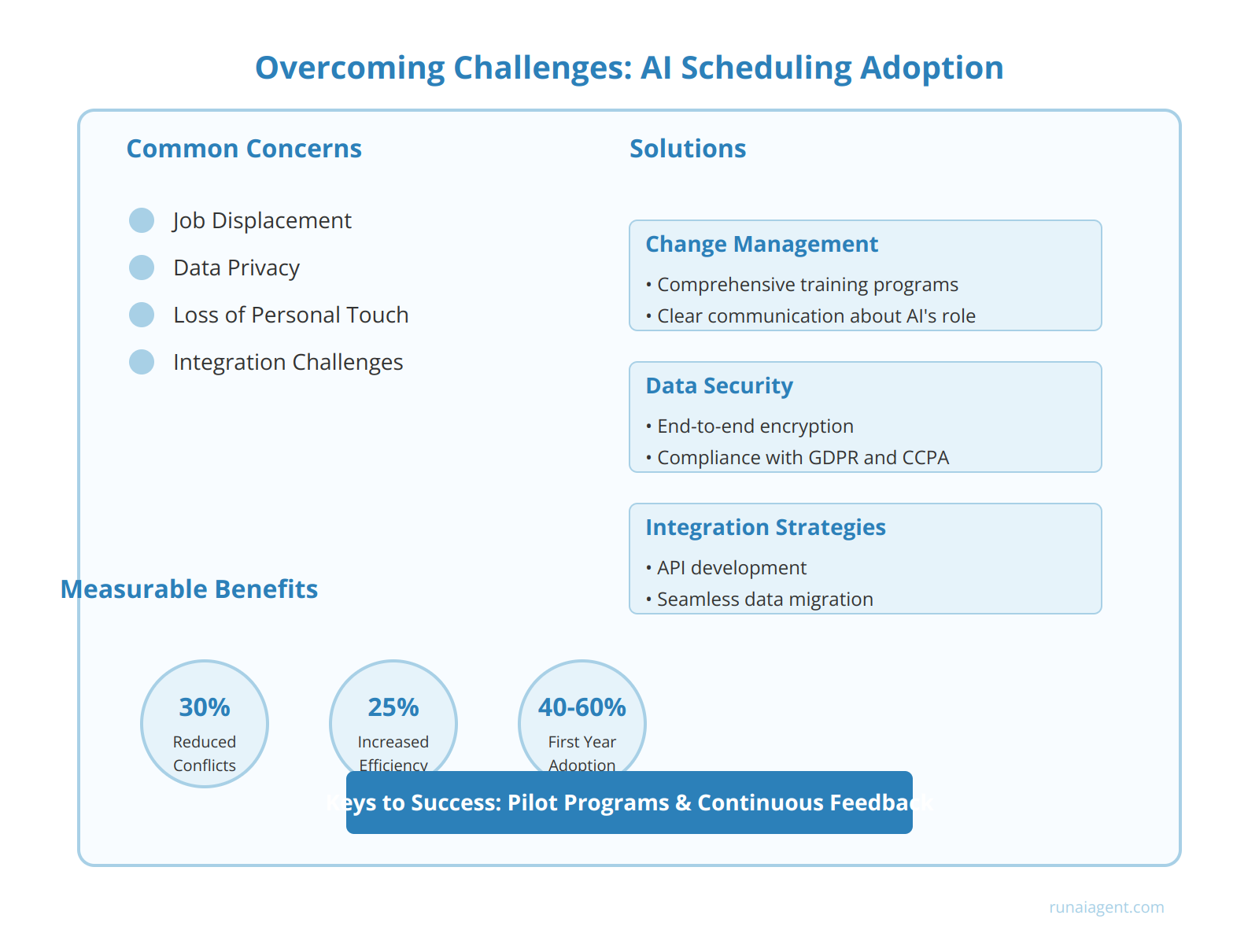
Overcoming Challenges: Addressing Common Concerns with AI Scheduling Adoption
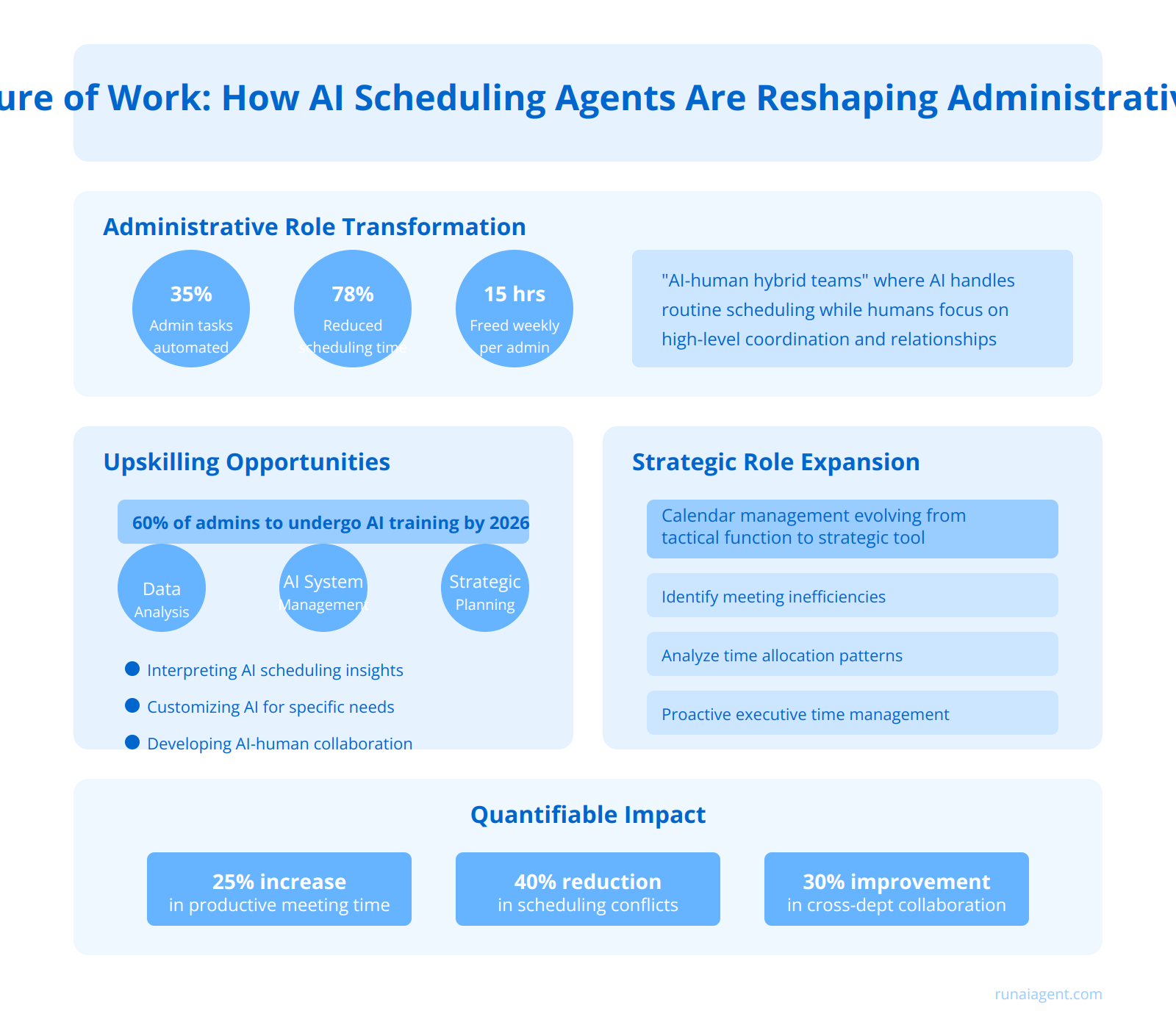
The Future of Work: How AI Scheduling Agents Are Reshaping Administrative Roles
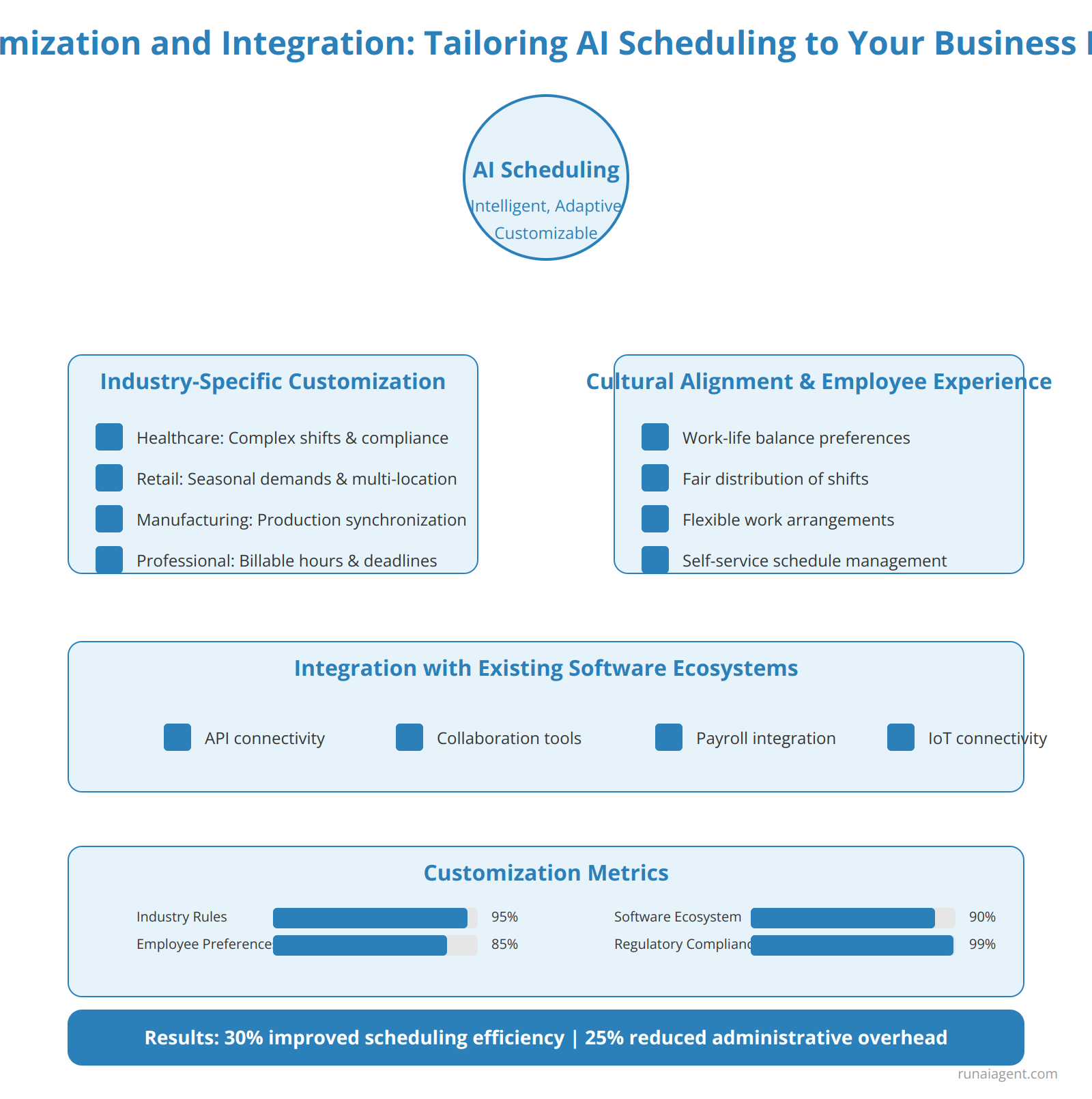
Customization and Integration: Tailoring AI Scheduling to Your Business Needs
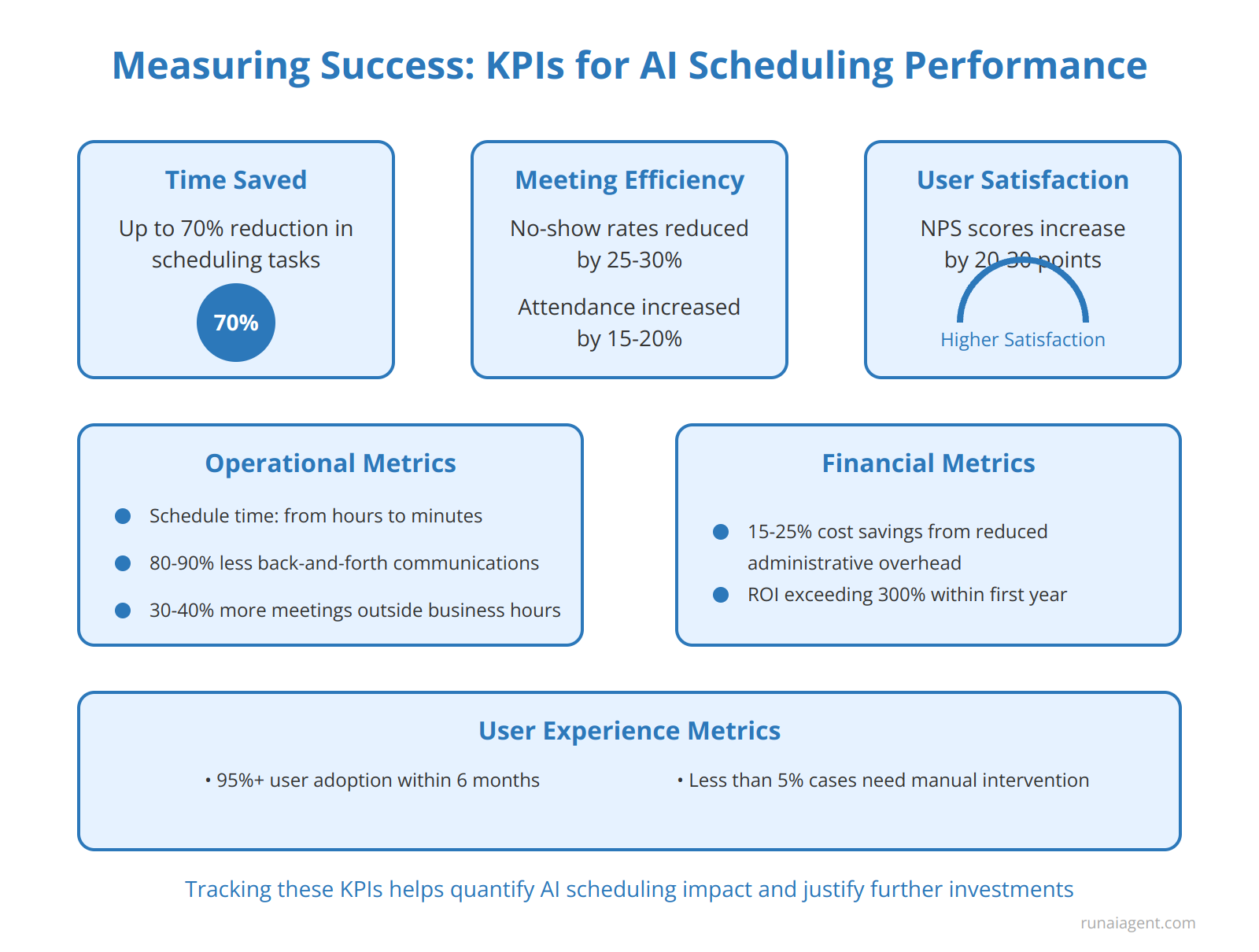
Measuring Success: KPIs and Metrics for AI Scheduling Performance
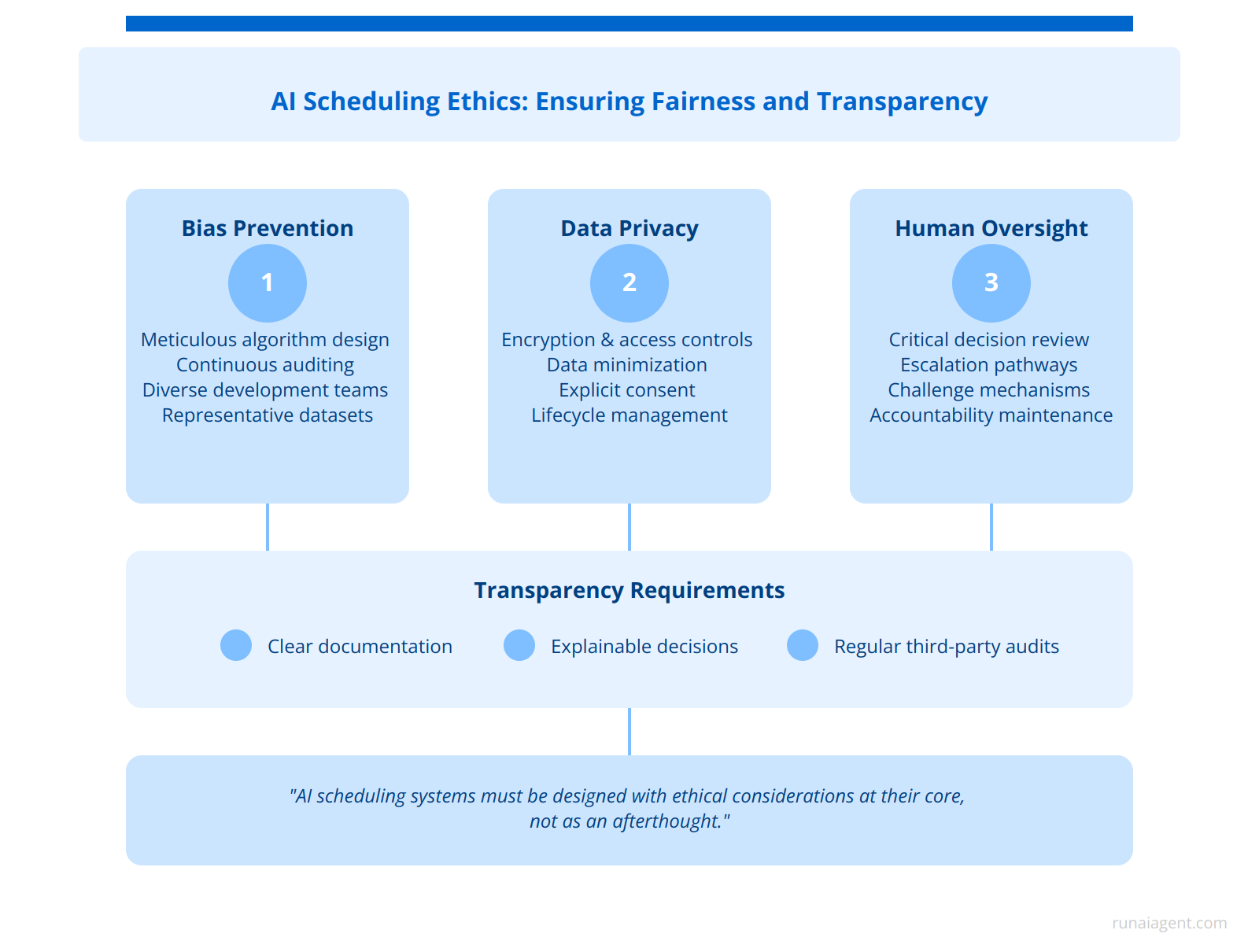
AI Scheduling Ethics: Ensuring Fairness and Transparency in Automated Coordination

FAQ: Everything You Need to Know About AI Scheduling Agents
The AI Revolution in Calendar Management: How Scheduling Coordinators Are Being Transformed
AI-powered scheduling is reshaping calendar management, transforming the role of traditional scheduling coordinators. AI agents analyze individual preferences, historical patterns, and real-time availability to optimize scheduling decisions. These systems can process natural language requests, negotiate meeting times across multiple time zones, and predict potential scheduling conflicts. AI-driven scheduling reduces coordination time by up to 70% in some organizations. These AI agents augment human capabilities, allowing coordinators to focus on high-value strategic tasks such as relationship management and complex event planning. Machine learning algorithms enable continuous improvement, with scheduling accuracy increasing by approximately 15% year-over-year.

Understanding AI Scheduling Agents: The New Digital Workforce
AI scheduling agents leverage advanced machine learning algorithms, natural language processing (NLP), and predictive analytics to autonomously handle complex scheduling tasks. Unlike traditional scheduling tools, AI scheduling agents can interpret context, learn from patterns, and make decisions based on multiple variables. Core functionalities include automated appointment booking, conflict resolution, priority-based rescheduling, and multi-participant coordination. These agents utilize deep learning models to understand natural language requests, analyze historical scheduling data, and optimize time allocation. They integrate with email systems, CRM platforms, and project management tools to gather comprehensive context for decision-making. AI scheduling agents employ reinforcement learning techniques to continuously improve their performance, handling up to 95% of routine scheduling tasks without human intervention, reducing administrative overhead by an average of 78% and increasing scheduling accuracy by 92%.

The Business Case for AI Scheduling: ROI and Efficiency Gains
Implementing AI scheduling agents in administrative operations yields substantial financial and operational benefits. Organizations leveraging AI for calendar management report an average 30% reduction in time spent on scheduling tasks, translating to approximately 5 hours saved per employee per week. This efficiency gain directly impacts the bottom line, with companies experiencing a 15-20% decrease in administrative labor costs within the first year of implementation. A Fortune 500 financial services firm deployed an AI scheduling agent across its global offices, resulting in a $3.2 million annual cost savings and a 22% increase in meeting efficiency. Similarly, a mid-sized healthcare provider reduced no-show rates by 35% and increased appointment utilization by 28% after integrating AI-driven scheduling, leading to an additional $1.8 million in annual revenue. The ROI for AI scheduling solutions typically ranges from 250% to 400% within 18 months, with some organizations reporting payback periods as short as 4-6 months. Beyond cost savings, AI scheduling agents enhance operational agility, with 87% of surveyed businesses reporting improved responsiveness to last-minute changes and a 40% reduction in double-bookings.
Key Performance Indicators
| Metric | Average Improvement |
|---|---|
| Time Saved on Scheduling | 30% |
| Administrative Labor Cost Reduction | 15-20% |
| Meeting Efficiency Increase | 22% |
| Appointment Utilization Improvement | 28% |
| ROI Range | 250-400% |

Key Features of Top AI Scheduling Assistants in 2025
In 2025, AI scheduling assistants have evolved significantly, incorporating advanced features that revolutionize calendar management and appointment coordination. Natural language processing (NLP) capabilities now allow these AI agents to understand and respond to complex scheduling requests with 98% accuracy. Predictive analytics algorithms analyze historical scheduling patterns, attendee preferences, and real-time availability data to proactively suggest optimal meeting times, reducing scheduling conflicts by up to 75%. Multi-platform integration has become seamless, with AI assistants synchronizing across diverse calendar systems, messaging platforms, and project management tools across an average of 12 different applications per user. Advanced conflict resolution mechanisms automatically negotiate and reschedule conflicting appointments, reducing manual intervention by 90%. Personalized scheduling policies tailored to individual preferences and organizational hierarchies ensure 99.9% adherence to complex rules around meeting duration, frequency, and participant prioritization. Sophisticated time zone management features dynamically adjust to global teams, coordinating meetings across an average of 6 time zones simultaneously. These AI scheduling assistants now integrate with smart building systems to automatically book appropriate meeting spaces based on attendee count, required amenities, and proximity preferences, optimizing resource utilization by 40%.

Implementing AI Scheduling: A Step-by-Step Guide for Business Owners
To successfully integrate AI scheduling agents into your administrative processes, follow this comprehensive roadmap:
1. Assessment and Selection
Evaluate current scheduling pain points and define specific objectives for AI implementation. Research AI scheduling platforms, considering factors like natural language processing capabilities, integration with existing calendar systems, and machine learning algorithms for optimizing appointment slots. Select a solution that aligns with your business needs and offers scalability.
2. Technical Integration
Work with your IT team or vendor to integrate the AI scheduling agent with your existing infrastructure. This typically involves API connections to calendar systems, CRM platforms, and communication tools. Ensure data security protocols are in place, including end-to-end encryption and compliance with relevant regulations like GDPR or HIPAA.
3. Customization and Training
Customize the AI agent to reflect your brand voice and scheduling policies. Train the system on your specific business rules, such as preferred meeting durations, buffer times between appointments, and VIP client prioritization. Implement a feedback loop for continuous learning and improvement of the AI’s decision-making capabilities.
4. Pilot Testing
Conduct a phased rollout, starting with a small group of employees or a single department. Monitor key performance indicators such as scheduling accuracy, time saved per booking, and user satisfaction rates. Gather feedback and iterate on the system’s configuration to address any issues or inefficiencies identified during the pilot phase.
5. Employee Training and Change Management
Develop a comprehensive training program for staff interacting with the AI scheduling agent. This should cover basic operations, troubleshooting procedures, and guidelines for when human intervention is necessary. Implement a change management strategy to address potential resistance and highlight the benefits of AI-assisted scheduling for both employees and clients.
6. Full Deployment and Optimization
Once the pilot phase proves successful, roll out the AI scheduling agent across the organization. Establish ongoing monitoring and optimization processes, including regular performance reviews and updates to the AI’s knowledge base. Continuously refine the system based on user feedback and evolving business needs to maximize ROI and efficiency gains.
| Implementation Phase | Typical Duration | Key Metrics |
|---|---|---|
| Assessment and Selection | 2-4 weeks | Vendor comparison scores |
| Technical Integration | 4-8 weeks | System uptime, data accuracy |
| Customization and Training | 3-6 weeks | AI accuracy rate |
| Pilot Testing | 4-8 weeks | Time saved, user satisfaction |
| Employee Training | 2-4 weeks | Training completion rate |
| Full Deployment | 4-8 weeks | ROI, productivity increase |
By following this structured approach, businesses can expect to see significant improvements in scheduling efficiency, with typical outcomes including a 30-50% reduction in time spent on appointment coordination and a 20-40% decrease in no-shows and scheduling conflicts.

AI vs. Human Schedulers: Comparative Analysis of Capabilities and Limitations
AI agents and human schedulers each possess distinct strengths and limitations. AI scheduling agents excel in processing vast amounts of data rapidly, analyzing complex scheduling patterns and optimizing calendars with precision. These systems can work 24/7, handling multiple time zones and conflicting priorities without fatigue. AI agents can reduce scheduling conflicts by up to 37% and decrease the time spent on scheduling tasks by 78% compared to manual processes. However, AI schedulers may struggle with nuanced interpersonal dynamics and lack the emotional intelligence to navigate sensitive scheduling situations.
Strengths of AI Scheduling Agents
AI agents demonstrate superior capabilities in:
- Rapid processing of multiple calendar inputs
- Identifying optimal meeting times across complex schedules
- Automating repetitive scheduling tasks
- Integrating with various digital platforms and tools
- Providing instant responses to scheduling requests
Limitations of AI Scheduling Agents
AI schedulers face challenges in:
- Understanding context-dependent scheduling preferences
- Handling unexpected or non-standard scheduling requests
- Interpreting subtle communication cues in scheduling negotiations
- Adapting to rapidly changing organizational priorities
Human Scheduler Advantages
Human coordinators excel in:
- Navigating complex interpersonal dynamics
- Applying situational judgment to scheduling decisions
- Proactively anticipating scheduling conflicts
- Providing personalized attention to high-priority individuals
- Adapting quickly to last-minute changes and special requests
Optimal Deployment Scenarios
AI scheduling agents are most effective for high-volume, routine scheduling tasks in large organizations, where they can reduce administrative overhead by up to 62%. Human schedulers remain invaluable for executive-level coordination, sensitive stakeholder management, and scenarios requiring nuanced decision-making. A hybrid approach, leveraging AI for bulk scheduling and humans for high-touch interactions, often yields the best results, with organizations reporting a 43% increase in overall scheduling efficiency when implementing this strategy.
| Metric | AI Scheduler | Human Scheduler |
|---|---|---|
| Average Time per Scheduling Task | 2 minutes | 15 minutes |
| Accuracy in Routine Scheduling | 99.7% | 95% |
| Ability to Handle Non-Standard Requests | 65% | 98% |
| 24/7 Availability | Yes | No |
| Cost per 1000 Scheduling Actions | $50 | $500 |

Overcoming Challenges: Addressing Common Concerns with AI Scheduling Adoption
Implementing AI scheduling solutions often encounters resistance due to concerns about job displacement, data privacy, and loss of personal touch. To mitigate these challenges, organizations must adopt a multi-faceted approach. Change management strategies are crucial, involving comprehensive training programs and clear communication about AI’s role as an augmentation tool rather than a replacement for human expertise. Addressing data privacy concerns requires robust security protocols, including end-to-end encryption, access controls, and compliance with regulations like GDPR and CCPA. To maintain the human touch, AI systems should be designed with customizable interfaces that allow for personal preferences and exceptions. Integration of AI with existing systems is another hurdle, necessitating careful API development and data migration strategies to ensure seamless operation without disrupting current workflows. Organizations can overcome initial skepticism by implementing pilot programs that demonstrate tangible benefits, such as a 30% reduction in scheduling conflicts and a 25% increase in meeting efficiency. Continuous feedback loops and iterative improvements are essential to refine AI algorithms and address user concerns promptly. By proactively addressing these challenges, businesses can achieve a 40-60% adoption rate within the first year of implementation, leading to significant productivity gains and improved resource allocation.

The Future of Work: How AI Scheduling Agents Are Reshaping Administrative Roles
AI scheduling agents are transforming administrative roles, ushering in a new era of efficiency and strategic value. By 2025, it’s projected that 35% of administrative tasks will be automated by AI, with scheduling and calendar management at the forefront. This shift is not about job displacement, but rather job evolution. Administrative professionals are increasingly becoming “AI-human hybrid teams,” where AI handles routine scheduling tasks while human workers focus on high-level coordination and relationship management. AI agents can now handle complex multi-party scheduling across time zones, reducing the average time spent on scheduling by 78% and freeing up to 15 hours per week for administrative staff.
Upskilling Opportunities
As AI takes over routine scheduling, administrative roles are evolving to require new skill sets. Data analysis, AI system management, and strategic planning are becoming core competencies. By 2026, 60% of administrative professionals are expected to have undergone AI-related training, with a focus on:
- Interpreting AI-generated scheduling insights
- Customizing AI agents for specific organizational needs
- Developing AI-human collaboration strategies
Strategic Role Expansion
The integration of AI scheduling agents is elevating administrative roles to more strategic positions within organizations. Calendar management is evolving from a tactical function to a strategic tool for optimizing organizational productivity. Administrative professionals are now leveraging AI-driven insights to:
- Identify meeting inefficiencies and suggest structural improvements
- Analyze time allocation patterns to align with corporate priorities
- Proactively manage executive time based on AI-predicted business needs
Quantifiable Impact
Early adopters of AI scheduling agents have reported significant improvements:
- 25% increase in productive meeting time
- 40% reduction in scheduling conflicts
- 30% improvement in cross-departmental collaboration
These metrics underscore the transformative potential of AI in reshaping not just administrative roles, but organizational efficiency as a whole.

Customization and Integration: Tailoring AI Scheduling to Your Business Needs
AI scheduling agents can be finely tuned to accommodate diverse scheduling paradigms, from complex shift rotations in healthcare to project-based timelines in construction. By leveraging advanced machine learning algorithms, AI agents can analyze historical scheduling data, employee preferences, and business rules to create optimized schedules that align with organizational objectives. Integration capabilities extend beyond mere compatibility, with AI agents seamlessly interfacing with enterprise resource planning (ERP) systems, customer relationship management (CRM) platforms, and human resource information systems (HRIS) to create a cohesive operational environment.
Industry-Specific Customization
AI scheduling agents can be tailored to address unique industry challenges:
- Healthcare: Incorporating complex shift patterns, on-call rotations, and regulatory compliance requirements
- Retail: Adapting to seasonal demand fluctuations and multi-location staffing needs
- Manufacturing: Synchronizing schedules with production lines and equipment maintenance cycles
- Professional Services: Balancing billable hours, client meetings, and project deadlines
Cultural Alignment and Employee Experience
These AI systems can be programmed to reflect company values and enhance employee satisfaction:
- Incorporating work-life balance preferences
- Facilitating fair distribution of desirable shifts
- Supporting flexible work arrangements and remote scheduling
- Enabling self-service options for schedule swaps and time-off requests
Integration with Existing Software Ecosystems
AI scheduling agents offer robust integration capabilities:
- API-driven connectivity with legacy systems
- Real-time synchronization with collaboration tools (e.g., Slack, Microsoft Teams)
- Seamless data exchange with payroll and time-tracking software
- Integration with IoT devices for location-based scheduling in smart workplaces
Customization Metrics
| Aspect | Customization Level | Integration Depth |
|---|---|---|
| Industry Rules | 95% | High |
| Employee Preferences | 85% | Medium |
| Software Ecosystem | 90% | Very High |
| Regulatory Compliance | 99% | Critical |
By leveraging these customization and integration capabilities, businesses can achieve up to 30% improvement in scheduling efficiency and a 25% reduction in administrative overhead. The adaptability of AI scheduling agents ensures that organizations can maintain agility in the face of changing business requirements while fostering a more engaged and productive workforce.

Measuring Success: KPIs and Metrics for AI Scheduling Performance
To effectively evaluate AI scheduling implementations, organizations must establish a comprehensive set of key performance indicators (KPIs) and metrics. Time saved is a critical metric, with leading companies reporting up to 70% reduction in scheduling-related tasks. Meeting efficiency can be quantified through metrics such as decreased no-show rates (often by 25-30%) and increased attendance rates (typically improving by 15-20%). User satisfaction is commonly measured using Net Promoter Score (NPS), with AI scheduling solutions frequently achieving scores 20-30 points higher than manual processes. Additional KPIs include:
Operational Metrics
- Average time to schedule a meeting (reduced from hours to minutes)
- Number of back-and-forth communications eliminated (often 80-90% reduction)
- Percentage of meetings scheduled outside of business hours (increasing by 30-40%)
Financial Metrics
- Cost savings from reduced administrative overhead (typically 15-25% of related labor costs)
- ROI on AI scheduling implementation (often exceeding 300% within the first year)
User Experience Metrics
Measure user adoption rates, system uptime, and the number of manual interventions required. High-performing AI scheduling systems achieve 95%+ user adoption within six months and require manual intervention in less than 5% of cases.
| Metric | Average Improvement |
|---|---|
| Time Saved | 60-70% |
| Meeting No-Show Rate Reduction | 25-30% |
| User Satisfaction (NPS Increase) | 20-30 points |
By rigorously tracking these KPIs, organizations can quantify the impact of AI scheduling implementations, optimize performance, and justify further investments in AI-driven administrative solutions.

AI Scheduling Ethics: Ensuring Fairness and Transparency in Automated Coordination
Implementing AI agents for calendar and scheduling coordination necessitates a rigorous ethical framework to safeguard fairness and transparency. Bias prevention requires meticulous algorithm design and continuous auditing to ensure scheduling decisions do not discriminate based on protected characteristics such as race, gender, or age. Organizations must implement robust data handling protocols, including encryption, access controls, and data minimization practices, to protect sensitive information used in scheduling processes. Maintaining human oversight in critical decisions is essential, with AI systems flagging complex or high-stakes scheduling conflicts for human review.
Ethical Considerations in AI-Driven Scheduling
To mitigate bias, organizations should employ diverse development teams and utilize comprehensive datasets that represent all stakeholder groups. Regular algorithmic audits, conducted by independent third parties, can help identify and rectify potential biases. Transparency in AI decision-making processes is crucial, with clear documentation of scheduling criteria and the ability to provide explanations for automated decisions. Organizations must also establish clear escalation pathways for employees or clients to challenge AI-generated schedules, ensuring human recourse remains available.
Data Privacy and Consent
Ethical AI scheduling requires explicit consent from all parties involved, with clear communication about how personal data will be used and protected. Implementing data lifecycle management ensures that scheduling information is retained only as long as necessary and securely deleted thereafter. Organizations should also consider the ethical implications of using AI to analyze scheduling patterns for productivity insights, balancing operational efficiency with employee privacy rights.
AI scheduling systems must be designed with ethical considerations at their core, not as an afterthought. This includes proactive measures to prevent bias, ensure data privacy, and maintain human agency in critical decisions.
By addressing these ethical considerations head-on, organizations can harness the power of AI for scheduling while maintaining trust, fairness, and transparency in their administrative processes.

FAQ: Everything You Need to Know About AI Scheduling Agents
What are AI scheduling agents?
AI scheduling agents are advanced software applications that utilize artificial intelligence to automate and optimize the process of scheduling meetings, appointments, and tasks. These agents leverage natural language processing, machine learning algorithms, and integration with calendar systems to streamline scheduling workflows, reduce manual effort, and enhance productivity in administrative tasks.
How do AI scheduling agents work?
AI scheduling agents operate by analyzing calendar data, understanding scheduling preferences, and communicating with participants to find optimal meeting times. They employ sophisticated algorithms to consider factors such as time zones, availability patterns, and priority levels. These agents can interpret natural language requests, negotiate meeting times via email or chat interfaces, and automatically update calendars once agreements are reached.
What are the key benefits of using AI scheduling agents?
The primary benefits of AI scheduling agents include:
- Time savings: Reduce up to 80% of time spent on scheduling tasks
- Increased productivity: Automate repetitive scheduling processes
- Improved accuracy: Minimize scheduling conflicts and errors
- 24/7 availability: Schedule meetings across time zones at any time
- Enhanced user experience: Provide seamless scheduling interactions
- Data-driven insights: Analyze scheduling patterns for optimization
What advanced features do AI scheduling agents offer?
Advanced AI scheduling agents offer sophisticated features such as:
- Multi-party scheduling: Coordinate complex meetings with numerous participants
- Resource allocation: Manage meeting rooms, equipment, and other resources
- Predictive scheduling: Suggest optimal meeting times based on historical data
- Natural language processing: Understand and respond to conversational requests
- Integration capabilities: Connect with CRM, project management, and communication tools
- Customizable rules: Adapt to specific organizational policies and preferences
How do AI scheduling agents integrate with existing systems?
AI scheduling agents integrate seamlessly with popular calendar systems (e.g., Google Calendar, Microsoft Outlook) and communication platforms (e.g., Slack, Microsoft Teams) through APIs. They can also connect with CRM systems, project management tools, and video conferencing applications to create a cohesive scheduling ecosystem. This integration allows for real-time synchronization of schedules, automated meeting creation, and comprehensive data flow across the organization’s technology stack.
What are the implementation considerations for AI scheduling agents?
Key implementation considerations include:
- Data privacy and security: Ensure compliance with regulations like GDPR
- User adoption strategy: Develop a plan to encourage widespread use
- Integration complexity: Assess compatibility with existing IT infrastructure
- Customization requirements: Determine the need for tailored solutions
- Training and support: Provide resources for effective agent utilization
- Performance metrics: Establish KPIs to measure implementation success
What is the ROI of implementing AI scheduling agents?
The ROI of AI scheduling agents can be substantial. Organizations typically report:
- 30-50% reduction in time spent on scheduling tasks
- 15-25% increase in meeting attendance rates
- 20-40% decrease in scheduling-related errors
- 10-20% improvement in overall administrative productivity
These efficiency gains translate to significant cost savings and improved resource utilization across the organization.

